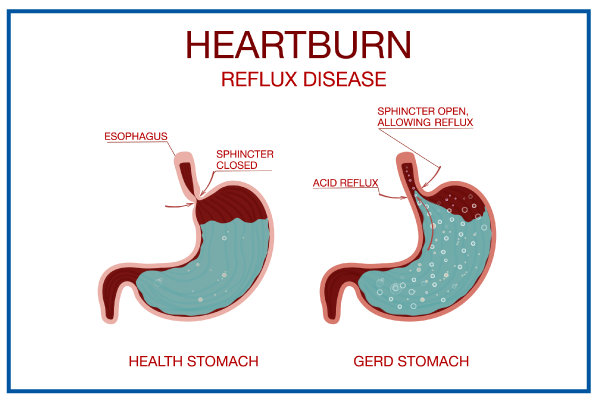Pregnancy, a remarkable phase in a woman’s life, can sometimes be marred by discomforts, and one of the most common is heartburn and indigestion. These challenges can overshadow the joy of expecting a baby. In this comprehensive guide, we, as maternal health experts, delve into the intricacies of understanding and alleviating heartburn and indigestion during pregnancy.
The Culprits: Unraveling the Causes
Hormonal Havoc: The Role of Pregnancy Hormones
The surge in pregnancy hormones, particularly progesterone, Heartburn and Indigestion plays a pivotal role in relaxing smooth muscles, including the lower esophageal sphincter (LES). This relaxation allows stomach acids to flow back into the esophagus, leading to that burning sensation known as heartburn.
The main reason for this is the hormonal and physical changes that occur in a woman’s body during pregnancy, particularly as the pregnancy progresses.
Here are some of the factors contributing to heartburn during pregnancy:
- Hormonal Changes: The hormone progesterone increases during pregnancy. This hormone helps to relax the muscles, including the muscles of the esophagus. As a result, the lower esophageal sphincter (LES), which is responsible for preventing stomach acid from flowing back into the esophagus, becomes relaxed. This relaxation can lead to increased occurrences of acid reflux, causing heartburn.
- Pressure from the Growing Uterus: As the baby grows, the uterus expands and puts pressure on the stomach. This pressure can force stomach acid into the esophagus, leading to heartburn.
- Changes in Stomach Function: The stomach also undergoes changes in its position and function as the pregnancy progresses. This can affect the normal process of digestion and contribute to heartburn.
- Delayed Emptying of the Stomach: Pregnancy can slow down the emptying of the stomach, allowing acid to stay in the stomach for a longer time. This can increase the likelihood of acid reflux.
- Increased Sensitivity: Some pregnant women may experience increased sensitivity to certain foods, making them more prone to heartburn.
It’s important for pregnant women to manage heartburn symptoms to ensure their comfort and well-being. The lifestyle and dietary tips mentioned earlier, such as eating smaller meals, avoiding trigger foods, and staying upright after eating, can be helpful in managing heartburn during pregnancy. However, it’s always advisable to consult with a healthcare provider for personalized advice and to rule out any underlying issues. They can recommend safe medications or other strategies to alleviate symptoms while ensuring the well-being of both the mother and the developing baby.
Baby’s Growth: Pressure on the Stomach
As your baby grows, the expanding uterus exerts pressure on the stomach. This pressure, coupled with hormonal changes, can contribute to the reflux of stomach contents into the esophagus, causing indigestion.
Coping Strategies: A Holistic Approach Heartburn and Indigestion
Mindful Eating: Slow Down and Savor
We advocate for a shift toward mindful eating practices. This involves slowing down, chewing food thoroughly, and avoiding large meals. Smaller, more frequent meals can help manage stomach acidity.
Stay Hydrated: Water as a Remedy
Maintaining adequate hydration is crucial. Water helps neutralize stomach acids and aids in digestion. Sipping fluids between meals, rather than during, can prevent unnecessary pressure on the stomach.
Choose Wisely: Pregnancy-Friendly Foods
Opt for a diet rich in fiber from fruits, vegetables, and whole grains. These foods promote healthy digestion and can help prevent constipation, a common companion of pregnancy-related indigestion.
Ginger Magic: Nature’s Soothing Remedy
Embrace the natural wonders of ginger. Known for its anti-inflammatory properties, ginger can be a soothing remedy for indigestion. Whether in tea or as a supplement, ginger offers a gentle yet effective solution.
Lifestyle Adjustments: Creating Comfort
Elevated Sleeping Position: Nighttime Relief
Combat nighttime heartburn by elevating your upper body while sleeping. Utilize pillows to create a slight incline, reducing the likelihood of stomach acid flowing back into the esophagus.
Loose and Comfortable Clothing: Minimizing Discomfort
Tight clothing can exacerbate indigestion. Opt for loose, comfortable attire that doesn’t constrict your growing belly, allowing for better digestion and minimizing discomfort.
Stress Reduction Techniques: A Calm Mind for Digestion
High-stress levels can exacerbate heartburn and indigestion. Incorporate stress-reducing techniques into your routine, such as prenatal yoga, meditation, or deep breathing exercises.
When to Seek Professional Guidance
While these strategies offer relief for many, persistent or severe symptoms warrant professional consultation. Your healthcare provider can offer tailored advice and may recommend pregnancy-safe medications if necessary.
Final Thoughts
Navigating heartburn and indigestion during pregnancy is a nuanced journey. By implementing mindful lifestyle changes, dietary adjustments, and seeking professional guidance when needed, you can enhance your well-being during this transformative period. This informative guide can be your companion in ensuring a more comfortable and enjoyable pregnancy.
